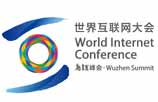Romney sticks to Obama songbook on China
By Tan Yingzi in Tampa, Florida (China Daily) Updated: 2012-08-29 08:21Despite some hostile rhetoric during his campaign, Republican presidential candidate Mitt Romney's views on China are largely in line with President Barack Obama, US experts said.
But Romney has not backed away from verbal bluster when it comes to tough economic policies toward China, which he has vowed to pursue if he defeats Obama in November's election.
 |
|
Standing in front of a large US national debt clock, Republican National Committee Chairman Reince Priebus addresses the 2012 Republican National Convention opening session in Tampa, Florida, on Monday. [Photo/Agencies] |
A few days before Monday's opening of the Republican National Convention in Tampa, Florida, Romney issued what he called "a strategy that makes the path of regional hegemony for China far more costly than the alternative path of becoming a responsible partner in the international system".
The challenger has also said he will adopt a "fresh and fearless" approach to US-China trade relations, which he says have been marred by Obama's "acquiescence".
Romney has said should he win the election, on his first day in office he would issue an executive order branding China a currency manipulator and directing that countervailing duties on Chinese imports be imposed if Beijing fails to act to strengthen the renminbi, including against Chinese companies or industries that rely on unfair practices or misappropriated US technology for competitive advantage.
He also would discontinue US government purchases from China until it commits to a World Trade Organization agreement on procurement, improve border enforcement to prevent counterfeit goods from being taken into the US from China and pursue significant claims of unfair Chinese trade practices through the courts, the WTO and the US Trade Representative's Office.
On defense, Romney said he would expand the US naval presence in the western Pacific and help allies in the region enhance their defensive capability against China.
To close off "China's option of expanding its influence through coercion", the United States needs to strengthen relations with regional powers such as India and Indonesia and build bilateral relations with and among like-minded nations around the world, a statement posted on Romney's official campaign website says.
"Our objective is not to build an anti-China coalition," the statement continues. "Rather it is to strengthen cooperation among countries with which we share a concern about China's growing power and increasing assertiveness and with whom we also share an interest in maintaining freedom of navigation and ensuring that disputes over resources are resolved by peaceful means."
Human rights and the Korean Peninsula's nuclear issues are also mentioned.
Romney will be tougher on sanctions against the Democratic People's Republic of Korea and urge China to use its political and economic leverage over its neighbor to end the DPRK's nuclear program.
"The policy statement on his website is very mainstream," said Bonnie Glaser, an expert on Chinese and Asian affairs at the Center for Strategic and International Studies, a Washington think tank. "Romney's own rhetoric has been rather different."
She said Romney's views are quite similar to the Obama administrations policies.
"In fact, US policy toward the region and China in particular has been bipartisan," she said. "I expect no major departures from current policy if Romney is elected."
The choice of former World Bank president Robert Zoellick to head Romney's national security transition team shows the Republican would be pragmatic and build on the achievements of Obama's administration, she added.
Some in the Republican party have complained that Zoellick, who served as trade representative and then deputy secretary of state under president George W Bush, is a foreign-policy realist who might be too friendly to China for some Republicans.
While their views concerning China seem on par, Jonathan Pollack, an Asia-Pacific studies expert at Washington's Brookings Institution, said the two candidates differ in tone and emphasis.
tanyingzi@chinadailyusa.com






